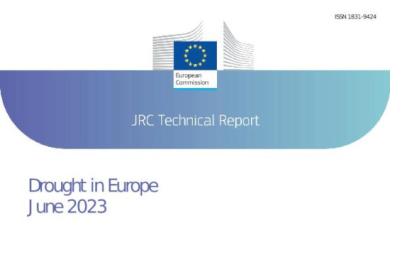A recently published technical report by the Joint Research Centre (JRC) of the European Commission reveals that seasonal weather forecasts point to a warmer-than-average summer, higher-than-average precipitation levels in the Mediterranean, but lower than usual for central and northern Europe, particularly for the regions around the Baltic Sea.
Link to publication announcement.
Link to publication repository.
Abstract (by JRC):
"A severe drought is affecting large parts of Europe. The severity and phases of its evolution differ across the continent: southern Europe already shows many impacts and is slowly moving into a drought recovery phase; northern Europe, on the other hand, is in an initial drought phase with a severe lack of precipitation. Recent precipitation in the Iberian Peninsula has not counterbalanced the effects of a persistent lack of precipitation and heatwaves. Impacts on crops and vegetation are still severe. A more recent meteorological drought affects the Baltic Sea regions, Scandinavia, the UK, Ireland, and Germany. It raises concerns for crop growth. Snow accumulation for the 2022-2023 winter season in Italy has been one of the worst of the last 30 years for the second year in a row, and the contribution of snowmelt to the runoff has been extremely reduced. Fire danger ranges from moderate to high over most of Europe, and is extreme over the Iberian Peninsula.
Seasonal forecasts point to a warmer than average summer. Precipitation is expected to be higher than normal in the Mediterranean, but severely lower in central and northern Europe, particularly for the Baltic Sea regions. Close monitoring of drought evolution and proper water use plans are required, as the summer of 2023 currently has a high risk of being critical with respect to water resources."


